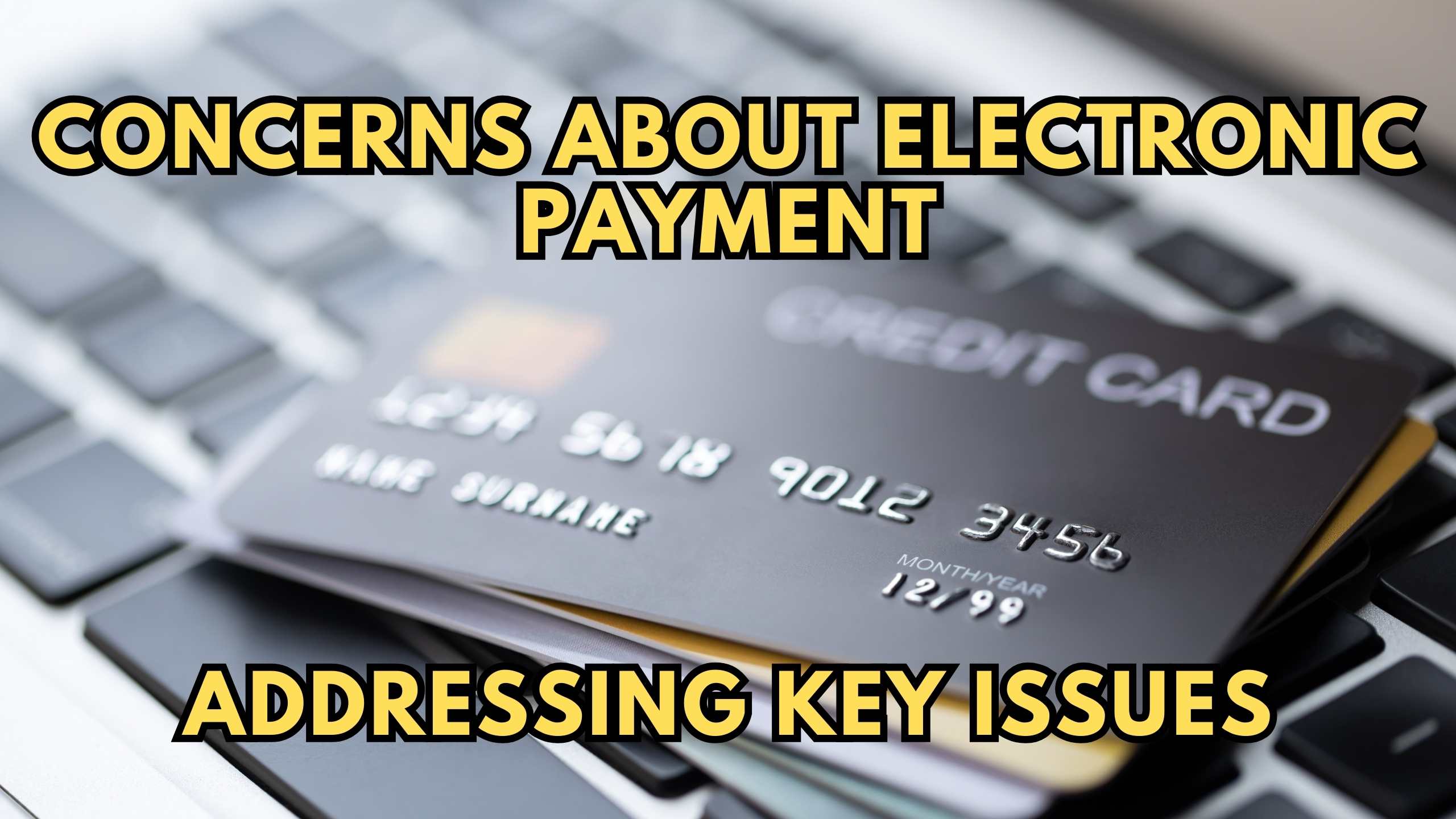Concerns about Electronic Payment: Addressing Key Issues


Concerns about Electronic Payment: Addressing Key Issues
As electronic payment methods become increasingly prevalent in today’s digital world, concerns about security, privacy, and reliability have emerged. It’s essential for businesses and consumers alike to address these key issues to ensure safe and seamless electronic transactions. This blog will delve into the main concerns about electronic payment and provide insights into strategies for mitigating these concerns effectively.
1. Security Risks in Electronic Payment
Security breaches and fraudulent activities pose significant risks in electronic payment systems. Cybercriminals exploit vulnerabilities in payment networks, leading to data breaches, identity theft, and financial losses. Implementing robust security measures such as encryption, tokenization, and multi-factor authentication is crucial for safeguarding sensitive payment information and preventing unauthorized access.
2. Privacy Concerns with Electronic Payments
Privacy concerns arise from the collection, storage, and sharing of personal and financial data during electronic transactions. Consumers are wary of potential privacy violations by payment processors, merchants, and third-party service providers. Adhering to stringent data protection regulations such as GDPR and PCI DSS, transparent privacy policies, and giving users control over their data can help alleviate privacy concerns and build trust among customers.
3. Reliability and Accessibility Challenges
Reliability and accessibility issues, such as system downtime, transaction failures, and limited payment options, hinder the seamless execution of electronic payments. Businesses must invest in robust infrastructure, redundancy measures, and alternative payment methods to ensure uninterrupted service availability and enhance customer satisfaction. Additionally, providing multiple payment options and accommodating diverse customer preferences can improve accessibility and drive conversion rates.
4. Regulatory Compliance and Legal Frameworks
Navigating complex regulatory requirements and compliance standards is another challenge in electronic payment systems. Businesses adhere to industry regulations, anti-money laundering laws, and consumer protection statutes to mitigate legal risks and avoid penalties. Conducting regular compliance audits, staying updated on regulatory changes, and partnering with reputable payment service providers can help businesses navigate the regulatory landscape effectively.
5. Ensuring Trust and Consumer Confidence
Building trust and fostering consumer confidence are paramount for the widespread adoption of electronic payment methods. Businesses prioritize transparency, accountability, and proactive communication to reassure customers about the security, privacy, and reliability of payment systems. Investing in fraud detection technologies, dispute resolution mechanisms, and responsive customer support can further enhance trust and loyalty among users.
Relevant SaaS Products
- Forter: A fraud prevention platform that uses advanced machine learning algorithms to detect and prevent fraudulent transactions in real-time, helping businesses mitigate security risks and protect against financial losses.
- Privacy: Offers virtual card solutions that enable consumers to generate single-use or multi-use virtual cards for online purchases, enhancing privacy and security by masking sensitive payment information.
- CyberSource: A comprehensive payment management platform that provides fraud detection, risk management, and payment processing solutions, empowering businesses to streamline electronic payments while ensuring compliance with regulatory requirements.
- TokenEx: Offers tokenization solutions that replace sensitive payment data with unique tokens, reducing the risk of data breaches and simplifying PCI compliance for merchants and payment processors.
- ComplyAdvantage: A compliance and risk management platform that helps businesses screen customers, vendors, and transactions against global sanctions lists and adverse media sources, enabling proactive compliance with AML and KYC regulations.
Conclusion
Addressing concerns about electronic payment is crucial for fostering trust, ensuring security, and promoting the widespread adoption of digital transactions. By implementing robust security measures, prioritizing privacy and compliance, and fostering transparency and trust, businesses can overcome key challenges and unlock the full potential of electronic payment systems.
Secure Your Electronic Payments with Subscribed.fyi!
Ready to enhance the security and reliability of your electronic payment systems? Subscribed.fyi offers exclusive deals on a range of SaaS tools tailored to address key concerns about electronic payment. Sign up for free today and unlock savings on fraud prevention, compliance management, and privacy protection solutions!
Relevant Links:





